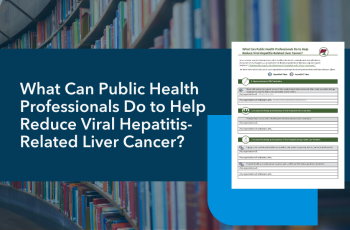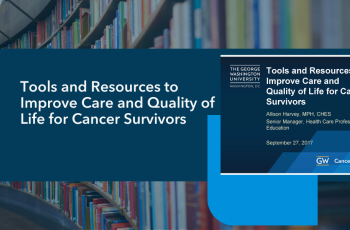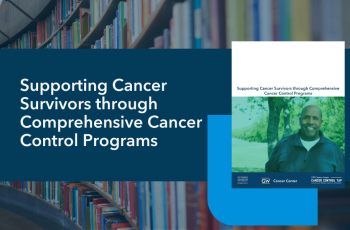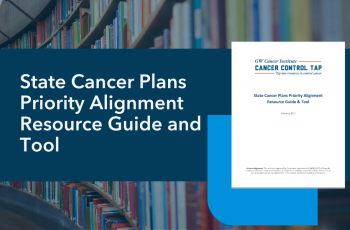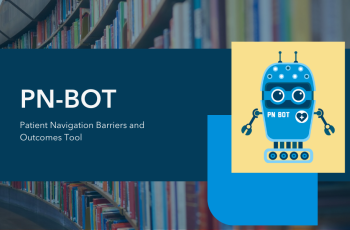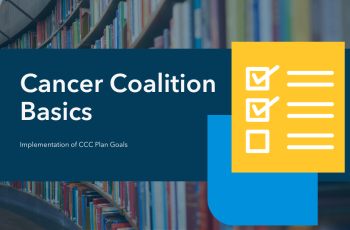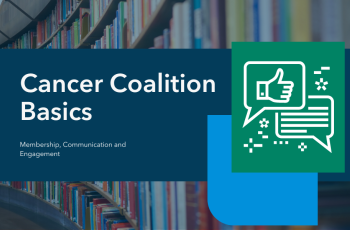This work was supported by Cooperative Agreement #NU58DP007539-01 from the Centers for Disease Control and Prevention (CDC).
GW Cancer Center
This poster reminds patients of all backgrounds, identities and national origins that they are welcome in your organization. Versions are available with and without the GW Cancer Center's logo.
Secure and sustainable funding is crucial for cancer control programming to flourish. Logic models can help convey to funders "why your program is important, and the logic behind why you expect it to be effective" and successful. On April 27, 2017, during National Cancer Control Month, we invited…
Here are some essential interventions public health professionals can implement that will address the burden of viral hepatitis, as presented in the National Academies of Sciences, Engineering and Medicine’s “A National Strategy for the Elimination of Hepatitis B and C: Phase Two Report.”
There are approximately 15.5 million cancer survivors living in the United States. Post-treatment cancer survivors are at increased risk for a variety of issues due to cancer and its treatment including long-term and late effects. In recent years, there has been an increased focus on ensuring…
The purpose of this survivorship report is to present a national snapshot of the current state of cancer survivorship in the U.S., including what we know about the health status, needs and disparities among survivors.
To help states better align their goals and activities with various national public health priorities and indicators, the GW Cancer Institute created a State Cancer Plans Priority Alignment Tool that summarizes top priorities and can be used as a guide for goal setting at the state and local levels…
The Patient Navigation Barriers and Outcomes Tool (PN-BOT) is a free, Excel-based data entry, data management and reporting product designed for oncology patient navigation programs.
This section of the Cancer Coalition Basics provides Comprehensive Cancer Control (CCC) coalitions with guidance and resources on funding, managing resources and sustaining the coalition.
This section of the Cancer Coalition Basics summarizes ways that comprehensive cancer control (CCC) coalitions can implement their state's cancer control plan goals.
This section of the Cancer Coalition Basics covers comprehensive cancer control coalition membership composition, process and engagement.


